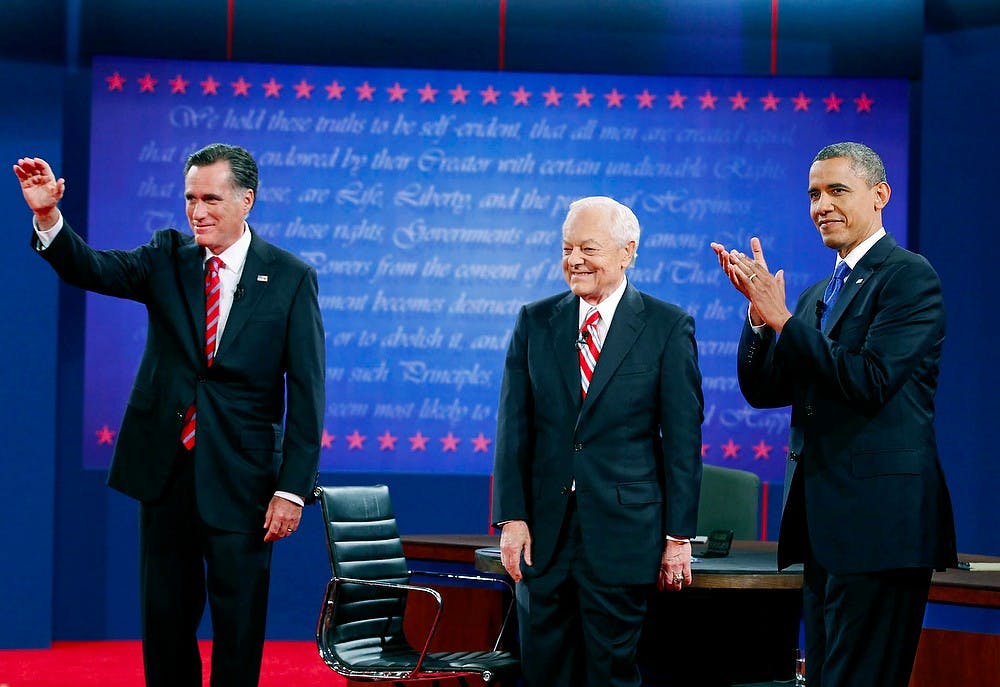Two weeks out from the Nov. 6 election, Republican presidential candidate Mitt Romney had one last opportunity to go head to head with President Barack Obama in a debate at Lynn University in Boca Raton, Fla., sparring on military intervention abroad and how to maintain the U.S.’s image around the world.
The third and final presidential debate served to illustrate the contrasts between Obama, who has four years of direct foreign policy experience as president, and Romney, who faces his biggest problem as a candidate in his lack of foreign policy experience, James Madison College professor Matt Zierler said.
Romney confronted Obama about his administration’s handling of international events, including the controversy surrounding a terrorist attack in Libya on Sept. 11, which was broached in previous debates.
Obama stood by his approach to investigate the Libyan embassy attack that killed four Americans, including ambassador Chris Stevens, reiterating the Libyan people still have confidence in U.S. involvement.
“I, and Americans, took leadership in organizing an international coalition that made sure we were able to … liberate a country that has been under the yolk of dictatorship for 40 years,” Obama said.
Before the debate, Zierler said he expected Romney would make a point to exhibit leadership against Obama to compensate for his lack of foreign policy experience and assure the audience he knows how to handle foreign affairs.
“(People) are looking for someone they can trust, whether Romney can lead and whether Obama has done an effective job in the past four years,” he said.
Romney rejected the idea of American military involvement in Syria — where Bashar Assad has been president for more than a decade — but supported the implementation of a new government or coalition to lead the country to democracy.
“We don’t want another Iraq, we don’t want another Afghanistan,” Romney said. “That is not the right course for us.”
Sam Herzing, a marketing junior and vice president of finance for the MSU International Relations Organization, said foreign policy tends to take a backseat in students’ minds compared to other issues.
“Even if the candidates are forced to … adjust for new events, voters can still decide at this point what kind of leader they want making those adjustments,” Herzing said.
Whomever wins the election next month undoubtedly will face a foreign policy decision for which there is no precedent, Zierler said.
During former president George W. Bush’s campaign and first several months in office, he laid out his vision for a post-cold war policy to pull out of international affairs, Zierler said.
But after the Sept. 11, 2001 terrorist attacks, the tone of Bush’s presidency changed — he became a different person from candidate Bush, Zierler said.
“Things happen in the moment,” he said. “(Foreign policy) is a series of reactions, and those take time.”
Support student media!
Please consider donating to The State News and help fund the future of journalism.
Discussion
Share and discuss “Third, final debate continues discussion on Libya” on social media.



